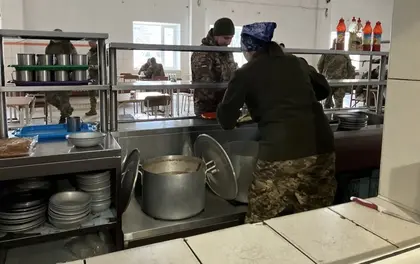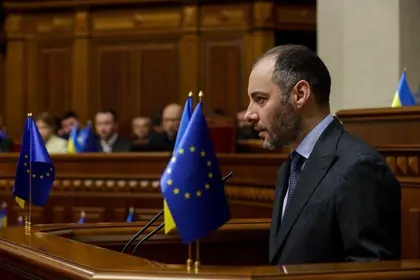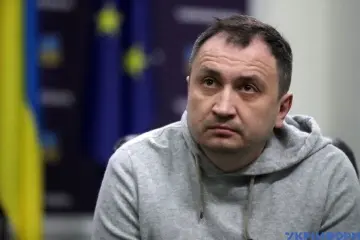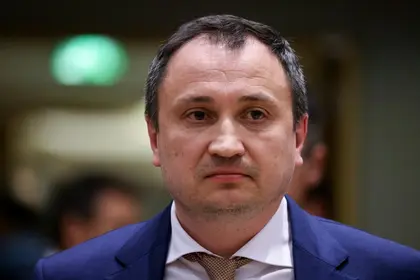Food is the basis of any army. An army that better feeds and supplies its soldiers with everything necessary fights much more effectively. In Ukraine, the procurement of food for the army has recently been beset by corruption scandals.
In March 2023, then Defense Minister Oleksiy Reznikov, found himself at the center of a corruption scandal with food purchases for the army. One egg was valued at Hr.17 (almost $0.5 dollars), while the cost of a dozen eggs on the wholesale market was slightly more than $1. In September of the same year, Reznikov was forced to resign.
JOIN US ON TELEGRAM
Follow our coverage of the war on the @Kyivpost_official.
Since the full-scale attack on Ukraine in 2022, the number of Ukrainian defenders has increased from 250,000 to almost a million. As a result, the margin for corruption within the defense ministry has increased.
Yuri Nikolov, an investigative journalist who exposed the procurement scandal, told Kyiv Post that the corruption component in almost Hr.50 billion of purchases for the army can be up to 25 or 30 percent. These funds are used in a non-transparent way, and at least Hr.10 billion ($250 million) are improperly spent or overpaid due to inflated prices.
How this happens is visible in a food procurement plan that the Ministry of Defense put together in December 2023 with two universities. The wholesale price of meat indicated is twice as high as retail prices in markets and supermarkets; even the price of vegetables is 20 percent higher.
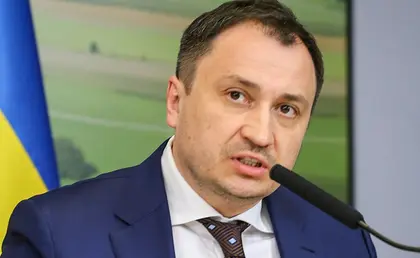
Ukrainian Minister Detained Over Suspected Corruption: Prosecutors
Unfortunately for watchdog organizations, the procurement contracts for the army are still concluded in the shadows, and their details are unknown even to the Defense Ministry’s authorities, leaving ample room for corruption.
How it works: a process open to abuse
The state announces tenders, which are responded to by supplier firms. The suppliers then purchase the appropriate products from manufacturers in the required quantity and supply them to military units.
Three aspects contribute to corruption:
1) Daily ration kit: The Soviet form of determining the cost of a soldier’s daily ration. Currently, it is equal to Hr.109 ($2.80) per serviceman per day. While it helps the command of the unit to calculate how many products must be purchased for the soldiers’ food, the problem stems from the fact that no one can control what will be included for that amount of money.
“There can be 80 hryvnias for meat and 30 for porridge. And it can be 100 hryvnias for porridge and 10 for meat. Or there can be the cheapest sausages with vegetables,”one of the officers told Kyiv Post on condition of anonymity.
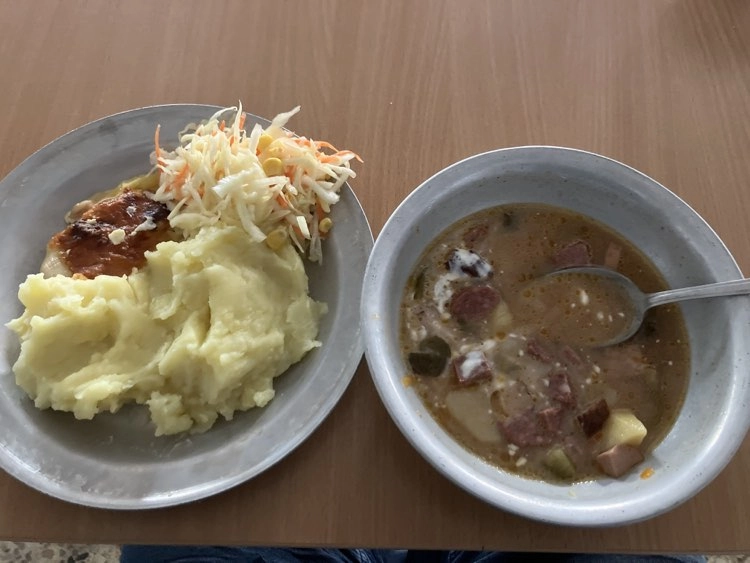
“The kit is a kind of construction. And it was invented to hide anything at any price,” says Arsen Zhumadilov, General Director of The State Operator for Non-lethal Acquisition.
2. Lack of control. The system is built in such a way that the real needs of a specific military unit are known only to the employees of this unit’s supply department of the supplier company. Controlling bodies do not know what the real needs are because they do not have appropriate lists. And outsiders, including journalists, are not allowed to enter the military unit.
“We have a paradoxical situation that only those who are ‘in the know’ know the real needs of the military,” says Yuriy Nikolov. “In fact, based on this data, these companies can know the number of soldiers and where they are, this is a matter of security.”
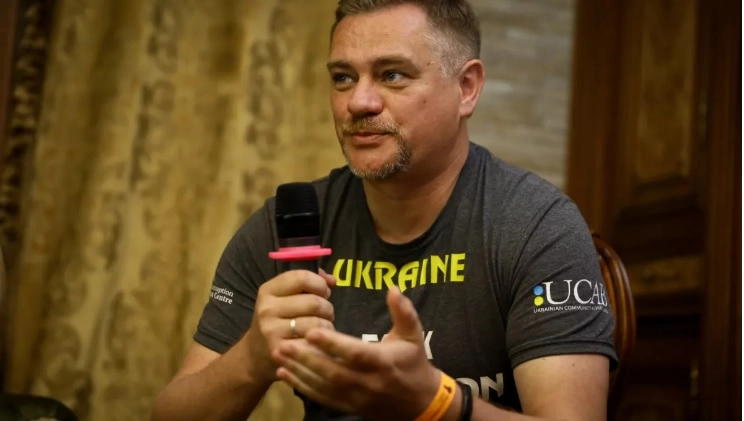
Kyiv Post sources say that the “kickback” on one kilogram of products in such conditions can be up to Hr.5 ($0.13). And the consumption of the army is measured in hundreds of tons per day.
The lack of clearly defined requirements also discourages retailers from participating in the auctions. One of the representatives of a large supermarket network told KyivPost that most of the questions arise due because it is not entirely clear what is supplied, to whom, and where. Until the system becomes transparent the risk of corruption will continue and large networks will not risk participating in tenders, which are in the hands of dubious intermediary firms.
3. A single catalog of products for the military. Ukraine long ago switched to the NATO catalog with more than 400 assorted items of food for the military.
The list of foods that can now be purchased for the military includes honey, sweets, and even sturgeon. But there is one problem. Only a company that supplies all these hundred items can supply food to the military, whichcontributes to the creation of corruption schemes by middlemen.
For example, a meat producer cannot supply the army with vegetables, and a bread producer cannot supply sweets or water. That is why key opportunities end up in the hands of intermediary firms that do not produce anything, but simply act as liaison between the producer and the soldier-consumer.
“The situation is such that manufacturers are now giving their products to Defense Ministry suppliers for next to nothing, and they are making up to 187 percent profit,” says Tetyana Nikolayenko, representative of the Anti-Corruption Council under the Ministry of Defense.
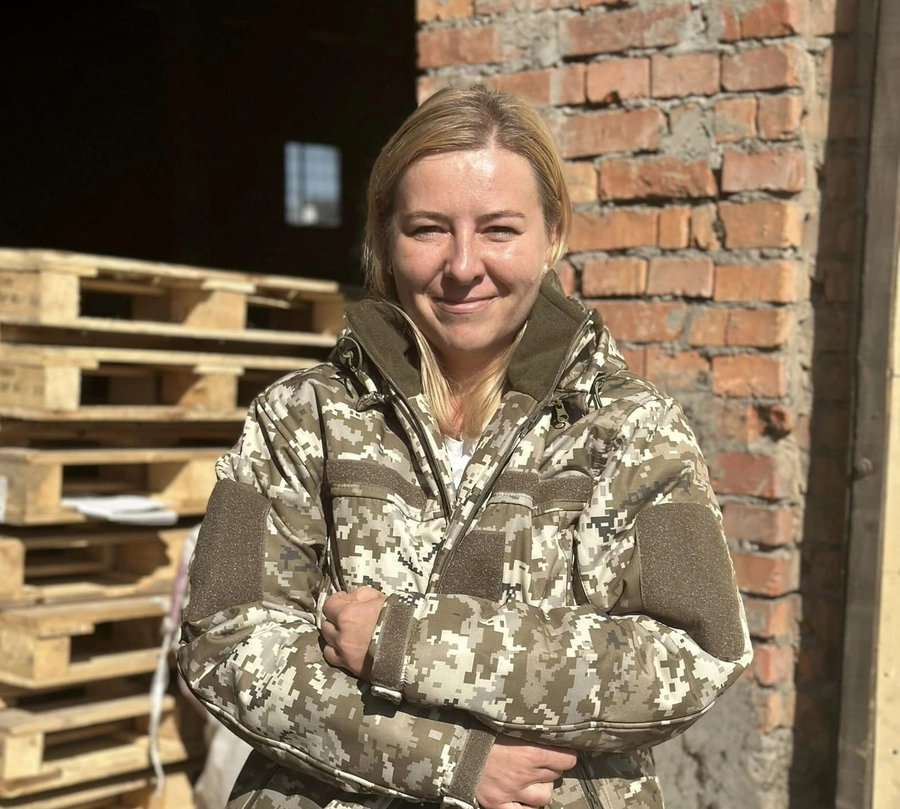
At the same time, she notes that none of the suppliers buys all 400 or so items.
“Here, only 26 percent of the list is bought. It is used by intermediaries to prevent real producers, who could sell it all cheaper, from trading,” Nikolayenko assured.
The new authority decided not to roll back the reforms, and then supplier firms started challenging the new procurement rules and demanding a return to the old ones.
Attempts at reforms
To overcome these problems, Ukraine created a separate institution toward the end of 2023, The State Operator for Non-lethal Acquisition (in Ukrainian - DOT).
The head of the DOT, Arsen Zhumadilov, says that the reform of food procurement for the army should be moving in two important directions.
The first direction entails the removal and selection from the catalog of several hundred items of individual products. The idea is that these selected goods were supplied by the manufacturers directly.
“We have already allocated water and bakery products. If earlier, through intermediaries, water for the military was purchased for Hr.5 ($0.13) per liter, now its price is Hr.3 ($0.08) per liter. That is, the savings are 30 percent of the cost. And the army consumes Hr.2 billion ($52 million) of water, so calculate the savings,” says Zhumadilov.
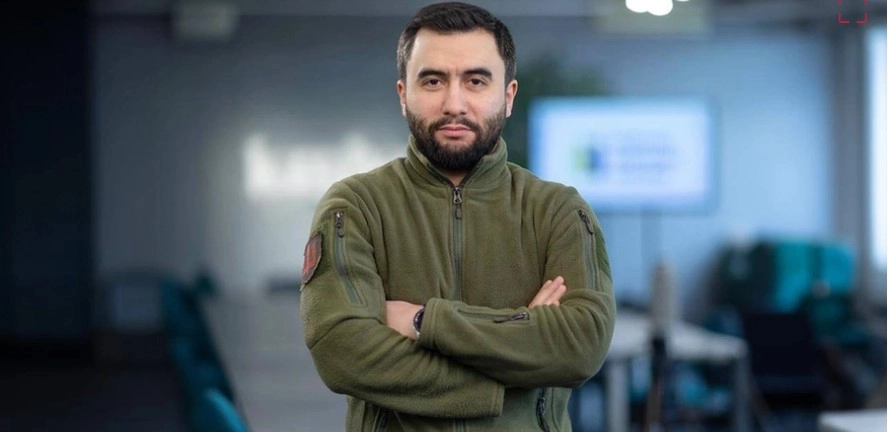
However, Kyiv Post sources say that the idea was initially even more radical: to immediately divide the entire catalog into groups of goods – meat, dairy, sweets, bread, vegetables, cereals, etc. – so that manufacturers could go everywhere without intermediaries. But the opposition of both those in the rear and suppliers stopped it.
“The DOT should have long ago started tenders according to a new procedure. For separate groups of goods, the cost of logistics should have been separated from the cost of the product a long time ago, in order to see the real prices for both products and delivery,” Nikolayenko emphasizes.
The second direction would require the DOT to collect all military food applications.
Earlier the applications went from the military unit to the supplier, Zhumadilov explains, and the Defense Ministry did not even know what was ordered, and in what volume.It saw it only in the invoices from the suppliers.
“It is about opacity and lack of governance. And now we will see the contracts, and therefore it will be necessary to fulfill them in full and deliver exactly what is specified in them,” he says.
The DOT will distribute orders among suppliers in order to understand what is planned for delivery.
“Because until now, when someone wanted to check whether the contract was being fulfilled, he went to the military unit, saw something, but couldn’t see whether it was really what was declared before delivery, whether it really arrived and in that amount, or what was specified in the contract,” Zhumadilov added.
Moreover, as Anastasia Shuba, another member of the Anti-Corruption Council under the Ministry of Defense, says, another means of combating corruption will soon be implemented – a division of recipients into clusters.
“There will be a total of 11 clusters, each with several regions. You won’t be supplying food to a specific military unit, but to a unit in your cluster. If a part of it leaves, it will be supplied by the one to whose cluster it will move,”she says. This innovation is intended to break the permanent connection between certain suppliers and military units.

The state has also strengthened requirements for product storage conditions, particularly for warehouses and their maintenance. And it has provided for fines in the event of any violation of conditions.
Blackmail and sabotage
The suppliers did not like the reforms and began to put pressure on the DOT team.
“I call it the ‘deep state.’ Right from the start, back in the fall of 2023, there were meetings at the colonel level about the fact that everything is not so bad, the system is working, but it could get worse.” Nikolov said.
According to him, the scandal of early 2023 testifies to the vitality of the system. Nikolov believes that the previous Minister of Defense, Oleksiy Reznikov was aware of attempts to implement these schemes, in particular with food purchases, and himself authorized the relevant contract.
Not so long ago, the new Commander-in-Chief of the Armed Forces of Ukraine (AFU) Oleksandr Syrskychanged the management of the AFU Logistics Forces –the very body that, according to our sources, resisted the reform. But the sources say it has not yet brought any serious changes. Even the new commanders have not yet provided Zhumadilov’s team with lists of food that the military units need.
However, the new authority decided not to roll back the reforms, and then supplier firms started to sue the DOT, challenging the new procurement rules and demanding a return to the old ones.
“It was a legal absurdity, the lawsuits were written extremely poorly from a legal point of view. In fact, it was spam, and the goal was to overwhelm the courts, delay the transition process, force them to continue doing everything according to the old rules,” one of the lawyers familiar with the case materials told Kyiv Post.
Since the intermediary firms did not provide any evidence of violation of their rights as suppliers, the court rejected their claims, effectively siding with the reformers.
At that time the intermediary firms, according to our interlocutors, disrupted the bidding, threatening theprovision of the army. One such firm, according to Nikolayenko, is Atomservice LLC, the largest supplier company to the AFU both before and after the start of the full-scale invasion. Atomservice wanted to return to the previous conditions of food supply.
Kyiv Post was able to call Atomservice representatives, but they hung up on us after our questions for clarification.
You can also highlight the text and press Ctrl + Enter


